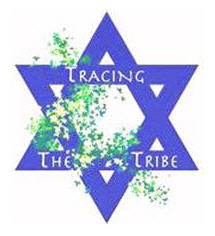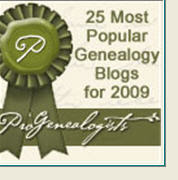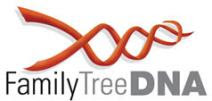Certified genetics counselor Gary S. Frolich will speak on “Our Heritage and Our Health – The Importance of Being Informed” at the next meeting of the Jewish Genealogy Society of Cleveland event on Wednesday, June 3.
The meeting at Menorah Park begins with a free dinner at 6.30pm, followed by Frolich's talk at 7.30pm.
The most widely-known Jewish genetic disorder is Tay-Sachs, which has benefited from testing since the 1970s. Intensive community-wide testing has lessened the incidence by about 90% for this fatal condition.
Frohlich speaks to synagogues, genealogy societies, Jewish organizations and Hillels to raise awareness. Many rabbis also advise young couples to undergo genetic testing as part of pre-marital counseling.
[NOTE: Although this talk is centered on Ashkenazi disorders, there are Sephardic disorders as well. Additionally, screening is also important as more intermarriage takes place. A couple may feel they are safe as one person may not identify as Jewish today. However, the non-Jewish spouse could have unknown Jewish roots just a few generations back and might be a disorder carrier without knowing about the possibility.]
For more information on any Jewish genetic disorders, visit the Jewish Genetic Disease Consortium or the National Society of Genetic Counselors.
Read the complete story here.
The meeting at Menorah Park begins with a free dinner at 6.30pm, followed by Frolich's talk at 7.30pm.
Ashkenazi Jews share a history rich in eastern European traditions and a strong sense of community. But they also share an increased incidence of Jewish genetic disorders (JGD) such as Gaucher, Tay-Sachs, familial dysautonomia, cystic fibrosis, Niemann-Pick and Canavan. Early screenings for these disorders and others can identify inherited genes that could lead to genetic disorders in children, says Gary S. Frohlich, M.S., CGS, senior medical affairs liaison for Genzyme Therapeutics.Many genes have been identified and work continues to find cures.
“During the Crusades, many Ashkenazi Jewish communities were driven from England, France and Germany and migrated to eastern Europe, settling primarily in modern-day Poland, Lithuania and Russia,” explains the affairs liaison for Genzyme Therapeutics. “Ashkenazi Jews tended to select marriage partners from within their own community, which played a role in limiting genetic diversity.”Frolich asks genealogists to shake their family trees and help identify those with a Jewish genetic disorder so they can educate other family members. Today, there are screening tests for at least 11 disorders; some centers can screen for 15-25.
The most widely-known Jewish genetic disorder is Tay-Sachs, which has benefited from testing since the 1970s. Intensive community-wide testing has lessened the incidence by about 90% for this fatal condition.
Frohlich speaks to synagogues, genealogy societies, Jewish organizations and Hillels to raise awareness. Many rabbis also advise young couples to undergo genetic testing as part of pre-marital counseling.
[NOTE: Although this talk is centered on Ashkenazi disorders, there are Sephardic disorders as well. Additionally, screening is also important as more intermarriage takes place. A couple may feel they are safe as one person may not identify as Jewish today. However, the non-Jewish spouse could have unknown Jewish roots just a few generations back and might be a disorder carrier without knowing about the possibility.]
For more information on any Jewish genetic disorders, visit the Jewish Genetic Disease Consortium or the National Society of Genetic Counselors.
Read the complete story here.





































No comments:
Post a Comment